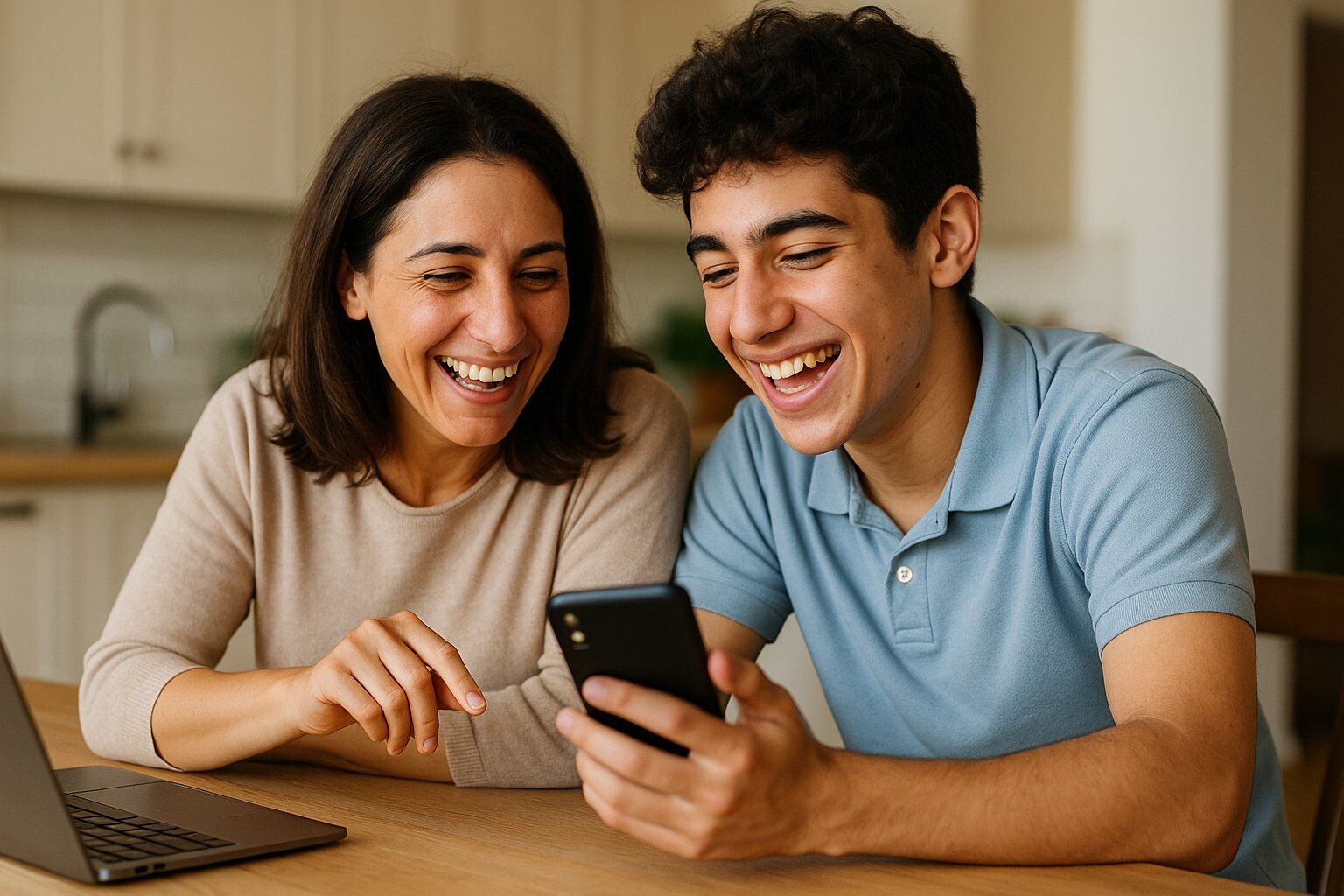If your teen always has a phone glued to their hand, it’s easy to panic. You picture dark algorithms and endless scrolling slowly turning your sweet child into a zombie, and the natural instinct is to clamp down: confiscate the device, declare a digital detox, maybe even switch off the Wi-Fi altogether. But the evidence tells us something more nuanced is at play.
A recent four-year study tracked more than 4,000 adolescents to see how their relationship with technology affected their well-being. Researchers didn’t just measure hours online – they looked at “addictive use” like ignoring schoolwork, skipping meals or feeling anxious when separated from devices. Nearly one in three kids fell into an increasingly addictive category. Those teens were twice as likely to report suicidal thoughts or behaviours by the end of the study. It wasn’t the total screen time that mattered; it was the compulsive pattern – the craving and distress when separated. In other words, doom-scrolling isn’t just about boredom; it can become a coping mechanism for deeper struggles.
Lead author Dr Yunyu Xiao warned that simply banning phones won’t solve the problem. Interventions that work for other addictions may be more effective, and parents and educators should focus on why technology becomes irresistible. Professor Amy Orben of the University of Cambridge echoed this, saying the “why and how” of technology use – whether it’s to escape bullying, quell anxiety or fill a void – may matter more than time spent online.
Families in the Middle East have been grappling with these questions, too. In a UAE-wide survey of parents with nine- to fourteen-year-olds, 70% admitted their children spend most of their free time on screens. Nearly half said there aren’t enough age-appropriate spaces for this “too old for soft play, too young to roam freely” age group. It’s tempting to blame the devices, but neurodiversity specialist Victoria McKeown points out that fear-mongering abdicates our responsibility. Instead, she compares the online world to a dodgy part of town: the problem isn’t that kids go there; it’s the lack of safe infrastructure and supervision.
Clinical neuropsychologist Dr Clarice Mendonca-King doesn’t think bans are realistic. She argues that we live in a world where screens are woven into work, relationships and daily chores. Her solution is “regulated screen time”: taking stock of our own habits, reflecting on what we’re replacing with devices, and setting boundaries that align with family goals. McKeown adds that screens can provide comfort for neurodivergent kids who feel overwhelmed at school. She works with one teen in Dubai who spends hours on flight simulator games and still gives her his full attention when they talk – heavy use doesn’t always equal addiction. The real red flag is when personality changes after devices are removed.
So how do we respond as parents? Start by checking your own relationship with screens. Do you scroll through emails at the dinner table or binge-watch shows into the night? Our kids are watching us. When you do set limits, involve them in creating alternatives: cook together, hit the park, or even join the game they love. A collaborative approach shows them that you’re on their side. Recognise that a phone often stands in for connection, belonging or self-expression – needs that aren’t met by simply confiscating devices.
This isn’t about being anti-tech. It’s about being pro-connection. Our teens are growing up in a digital landscape we never had to navigate, and they need guidance more than punishment. Help them understand why certain apps leave them feeling empty and empower them to question the influencers and ads flooding their feeds. Pairing curiosity with compassion goes much further than lecturing about “too much screen time.” Next time you’re tempted to yell “Put that phone down!”, take a breath, sit beside them and ask what’s drawing them in. You might just discover an opportunity to connect on a deeper level.
Sources: The Guardian article on the link between addictive screen use and teen mental health; The National’s report on why UAE experts urge connection over control rather than blanket screen bans.







Leave a Reply
You must be logged in to post a comment.